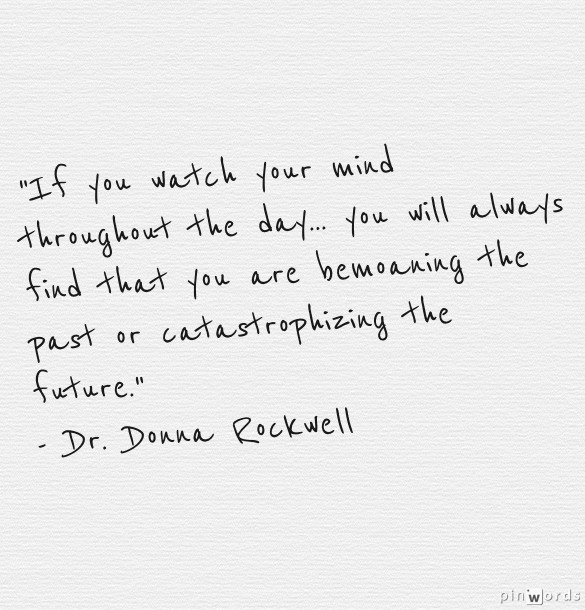We are all familiar with the difficulties involved in getting a coaching web site up and going. And, one that you can actually edit, blog with, etc.
Finally an amazing solution that works. I have to admit. I’m very proud. 😉

We are all familiar with the difficulties involved in getting a coaching web site up and going. And, one that you can actually edit, blog with, etc.
Finally an amazing solution that works. I have to admit. I’m very proud. 😉

 Once you hire a life coach, how long should you keep them on? 3 months, 6 months, a year, many years?
Once you hire a life coach, how long should you keep them on? 3 months, 6 months, a year, many years?
Simply, it depends on how long you want a partner helping you create good things in your life!
If you have a very specific short-term goal you’d like to achieve, you may work with your coach only for a few months. (It’s generally not recommended to work with a coach less than three months…It’s often hard to permanently integrate change in a shorter period of time. You need some real-life applying your new knowledge time!)
Many people create some wonderful results with their coach, then just keep using them! A relationship with a coach that “gets you”, knows how to motivate you, and is familiar with your common “pitfalls” can be absolutely invaluable.
Those that keep their coaches on for years, tend to go on to accomplish significant change or achievements, such as serious career advancement, major career change, or writing a book, for example.
Perhaps the most significant achievement for people that keep their coach on long term, is their level of personal fulfillment, and amount of positive contribution they make to the world.
Good stuff!

Huff Post has a nice little article on some quotes that came out of the Third Metric: Redefining Success Beyond Money & Power conference in New York. The focus was stress in the workplace and what to do about it…Really though this is a broader issue that applies to our whole lives.
Absorb and honor just one of these 28 insights and you will be moving in the right direction!
Heartbreaking and amazing situation. 3 women held captive for almost 10 years.
I’m sure you’ve heard the reports, but if not you can catch up on CNN…
One thing that really struck me is how Amanda handled the 911 call she made moments after managing to escape the home she had been held captive in.
She was very clear with the operator…(words may be slightly paraphrased) “I’m Amanda Berry and I’ve been kidnapped. I’ve been missing for 10 years. I’m free now.”
She clearly stated her need for police and she would not hang up with the operator until she knew the police were immediately on the way:
911 Operator: “Talk to the police when they get there.”
Amanda: “OK, are they on their way right now? I need to know!”
911 Operator: “As soon as we get a car open.”
Amanda: “No! I need them now!…”
I hear such strength, self-worth and empowerment behind her rightful exclamation of her truth: “No!” (That’s NOT ok!)
I’m amazed and humbled at her level of strength and willingness to claim what she needs. Especially after what I can only imagine was a 10 year tortuous nightmare.
If all people were as willing to state a boundary so clearly and effectively, the world would be a much better place. Thanks to great examples like Amanda, we are getting there.
One of my clients recently had an incredible success…I’m going to share it with you (with his permission, and some of the details have been changed to protect privacy!)
My client, let’s call him John, works at a high-profile charitable organization. It’s a very prestigious and somewhat high-pressure place to work, but worth it!
Except…When John starting having issues with a new boss, Bob. Bob was controlling, demanding, irrational, and incompetent. He was verbally and emotionally abusive, especially when he recognized he “didn’t know” what to do or the answer to problems.
Things were going in a very bad direction for John. The direction that has all the indicators of the build up to getting fired. Being required to account for every moment of his time. Being blamed for things that were not his fault but having no opportunity to explain himself. Being sidelined and outcast.
Things were complicated by John’s own self concept. “Maybe Bob is right…Maybe I am slow and not good enough to work at a place like this.” “Maybe I am a bad communicator.” “Maybe it is all my fault.”
Thankfully, logic, and a little coaching, helped John see that it wasn’t all his fault. There was objective evidence that he was performing his duties as he was supposed to. There were objective things that Bob that were doing that reached the level of abuse.
It was still an agonizing decision, though. What could be done about this situation? This was a very prestigious job and John didn’t want to lose it. John came to a crucial decision that was core to his success. He’d rather work somewhere else than put up with this treatment.
Once he accepted that, and all of the ramifications of that, he was fully empowered.
Fully knowing that it may lead to his swift firing, John scheduled a meeting with Bob’s boss. He brought objective written evidence of Bob’s behavior. He made it clear that there needed to be an immediate cessation of the abusive behavior or John would leave the organization. John gave Bob’s superior two weeks to come up with a solution.
(Now, for anyone reading this that is in a similar situation…I know there are many of you. The caveat here is an action like this may very well lead to the end of your time at this job. You must be ok with that as a possible outcome. If that does happen, you’ll most likely soon come to see it was for the best in any case. It is never a good long-term plan to let yourself get abused.)
Back to John. It’s almost like a miracle happened. Bob’s boss spoke to everyone in the department, everyone that was too afraid to speak out, and learned the truth about Bob’s behavior. Everyone confirmed exactly the same experiences that John was having. The truth was known.
The organization immediately started to work with Bob to improve his management skills and make it clear to him what behavior and language will not be tolerated.
Things were immediately better for John. It was made clear to him that he was highly valued, and there certainly were no plans to fire him. John feels secure in his job and he’s even taking on some new projects that he really loves and excels at. And, he is being supported, not sabotaged. John is back to LOVING his job.
John’s boss, Bob, has shown REAL change. He interacts with John, the rest of the department, and his peers, in a fair and professional manner. He seems to be really “getting” how a great manager can be. And, you know what, Bob has even become a happier and more balanced person himself.
The whole department is happier and healthier. All because one person was willing to honor themselves and no longer put up with abuse, no matter what the cost. One person was willing to tell the truth, and let things evolve from there.
Good things always evolve from truth and doing what is right. It may not always go as “smoothly” as it did for John, but it is always the right thing for all concerned. In this case, the great outcome is a perfect reflection of the courage it took for John to speak the truth and be willing to let whatever happened happen.
The Guardian recently published a great article about a nurse’s discussions with people at the end of their lives. What did they look back on and regret?
There were some common themes!
I wish I’d had the courage to live a life true to myself, not the life others expected of me.
I wish I hadn’t worked so hard.
I wish I’d had the courage to express my feelings.
I wish I had stayed in touch with my friends.
I wish that I had let myself be happier.
Perhaps not surprisingly, this is a list very consistent with the major themes of coaching.
Happiness matters, and is largely under your control.
Most people I speak with are giving more to their job than their job gives to them.
Most people I speak with have dreams, values, and personal characteristics they aren’t living.
Most people get true fulfillment in life from their personal relationships.
Most people can gain immeasurably by expressing their feelings. It is a key to not only deepening relationships, but also understanding yourself, who you want to be, and accessing the wisdom and energy required to create a truly great life.
Read the full article here…Top Five Regrets of the Dying.
Coaches vary widely in their approach, background, training, style and ideal client!
Some coaches are very nuts and bolts, some are very spiritual and high level. Some coaches will excel at helping you reach specific goals, and some coaches will excel at helping you get good at reaching goals on your own! Some coaches are pragmatic and high-level/transformative at the same time.
In my opinion (certainly biased because this is the type of coach I am!), the best coaches will help you grow in line with how you are meant to be growing. For example, this may be a time in your life when you are learning to live in prosperity, or maybe this is a time in your life when you are learning to express your truth more often in the work arena.
Somewhat counter-intuitively, growing in your own way will help you in all of the areas of your life you’ve identified as needing improvement, even if the exact growth area seems totally unrelated. So, for example, let’s say you want a new job, but it becomes very apparent early in your coaching that you have no idea how to organize your time effectively. Working on your routines and discipline will end up leading directly to more satisfying career conditions. That’s just how it works.
Here are some things to look for if you want a truly satisfying coaching experience…
Green Flags (things that are good signs that this is excellent coaching for you!)
Red Flags (signs this may not be the best coaching for you)
You may find that you find one coach that you LOVE and keep using for years. You may find that you have a coach that works great for you for a while, then you go off on your own. Or, you may find that different kinds of coaches work for you best at different times in your life.
To get started, do your research, and choose, 1, 2 or 3 coaches to have free sessions with. If you feel great about the first coach you talk to, give them a try for 1-3 months! Or, talk to a few coaches until you find someone you feel you click with.
There is no way a coach can prove to you that coaching is going to “work” for you without you giving it a try. You have to put yourself out there a bit and be willing to take a chance! The green flags and red flags listed above will help you assess early on if you are getting great coaching for YOU. When you connect with a great coach for you, there will be absolutely no stopping you in life. All of your dreams, even the ones you dared not dream, can come true. You will be accessing your unlimited potential, living the way that you want to be living, and absolutely in love with your life!
The snowstorm hitting the Northeast, Ontario and Atlantic provinces certainly is a challenge! Yet, like all challenges it contains some great opportunities for learning, appreciation, enjoyment and fulfillment. There is a lot to love here!
Top 5 Things to Love About the Snowstorm:
5. A Change From Your Usual Routine (a big one!)
It’s great when the weather simply makes it impossible to engage in your usual responsibilities. This is a chance to take a mini-break from work, school and even your usual mental concerns. Allow yourself this break! What does this break allow you to do that you usually can not? Play in the snow is an obvious first option!
4. A Super Chance for Learning
Yes, in a situation like this, some things are not going to go perfectly. That’s ok, that’s what growth looks like! This is a great chance for individuals, and towns, cities, states, provinces and countries to refine methods of communication, mutual support, and logistics. For example, we have ever increasing numbers of cool technologies now, cell phone cameras, Twitter, Facebook, crowd sourcing…How can they be used in situations like this? How can we engage weather events in better, smarter more organized ways? It doesn’t seem like there is going to be a decrease in challenging and unique weather events any time soon. No time like the present to get smart!
3. Exercise Your Appreciation Muscles!
The corner variety store owner. The snowplowing crews. The police, firefighters and emergency workers. The city workers and administrators. How often do you stop and give notice to how much these people help you? Not just in emergencies, but all the time! There is a complex network of people around you, helping you live the very best life you can. If it isn’t always obvious, it should be obvious right now. Feel the appreciation and share the love with a heartfelt thanks!
2. A Chance to Commune and Cooperate with Our Neighbors
We may have our Facebook friends, our co-workers and our families, but how often do we actually come out of our houses and talk to our neighbors? How often do we get to pitch in and help? Helping your community feels great and can make a huge contribution. Who needs help digging out? Is there an elderly person in the neighborhood you might check on? Do you have extra supplies you can share? Are there any pets or wildlife in distress? If you can’t find a way to pitch in and help, you’re not trying! (Conversely, if you need help, ask for it! Most people would love to help you if you tell them what you need.)
1. A Chance to Have Quality (Quiet!) Time with Our Family
Typical day at home…Everyone is in their own room staring at their own screens. There’s nothing like a power outage to bring everyone into the same room. And, gasp, talk to each other! Talk, play games, tell stories, work together and create memories. Maybe even a little snuggling to stay warm. 🙂 There can be nothing more refreshing, fulfilling and enjoyable than quality time with your family. Even if it wasn’t necessarily by choice. You may find that you enjoy it so much, you make some new resolutions, like one “blackout” evening per month from now on!
True fulfillment in life does not necessarily come when everything is “fine” and “normal”. True fulfillment comes in growth, creativity, overcoming challenges, helping others and connecting with other people. This snowstorm is a great opportunity for the quality moments that develop character and add depth and meaning to our lives.
Typical scenario: We perform below our expectations of ourselves.
Standard reaction: We don’t like that. It upsets us. We set a new expectation to do better next time.
Usual outcome: Our performance stays the sames or gets “worse”.
Sound familiar? Our standard reaction to behavior that is less than optimal is to encounter the behavior with negative energy, thinking (if we think at all), that our disapproval will get us better results next time.
How well has that approach worked for you?
Try this: Meet all your thoughts, feelings, actions and “results” with approval.
If you can’t bring yourself to do that, hire a coach and find out what it means to be unconditionally friendly with yourself, and how it can transform your whole life.
I had fun the other night, imaging how the 9 Enneagram personality types might respond to an identical input…
Let’s say, someone’s boss approaches and says something like “that was a horrible way to do that.” How might the different types react to this challenging input? For the responses below, I am imagining people at a moderate (a.k.a. normal) level of personal development.
Boss: “That was a horrible way to do that.”
Type 1: Look of derision. Anger/tension visible just under the surface. Too upset to speak right away. (Thoughts of all the ways the boss is incompetent. Afraid that too much anger will come out if they say anything. Lots of energy rising inside.)
Type 2: Almost crying, or crying…”But I worked really hard on that.” (Feeling wounded, feeling like the boss is saying they are a bad person.)
Type 3: “There were some difficulties in this case. My actions were within the guidelines of latest professional practice. However, I’ve adjusted my approach since then and am having perfect results henceforth. Thanks for the feedback, I’m always open to constructive criticism from a professional such as yourself.” (Saying all the right things, but feeling deep shame.)
Type 4: “What? How dare you say that?! I put my heart and soul into this! This is my finest work!” (Personally offended and outraged.)
Type 5: Low personal development: “Well, if you don’t want my help, I’m outta here.” Moderate personal development: “I don’t believe that is correct, and here is why…” (Emotionally disconnecting, retreating into “superior” logic.)
Type 6: “Oh, I’m sorry”. (Panicking internally, oh-my-god, is he right?)
Type 7: “Whoops! Let’s go grab a beer…” (Avoiding feeling pain, replacing with fun activity.)
Type 8: “Screw you. This is your fault! You are the one that screws up everything. You’ve really lost your focus ever since your wife left you, and I’m not going to pay the price for it.” (Aggressively fighting back, personal attacks.)
Type 9: “It’s cool man, no problem. How about I fix it tomorrow, ok?” (Taking the fastest road to everyone feeling calm.)
Obviously, these are attempts at predicting stereotypical responses, and people are much more complicated than that in reality! Also, you may find people of various types expressing patterns of almost any of the types at different times. Yet, I hope this gives a basic window into responses that might be ‘typical’ of the Enneagram types!